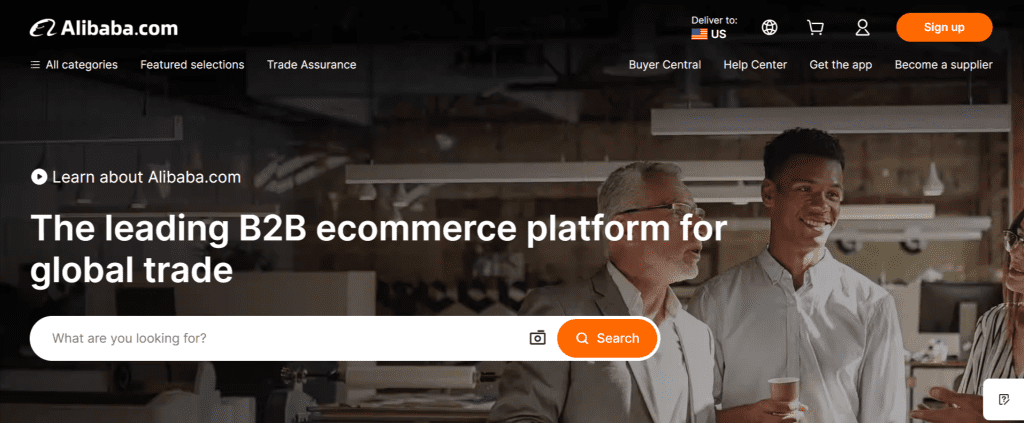Importing goods from China and Dubai to Nigeria is a profitable business, as both countries offer a wide range of products at competitive prices. China is known for affordable electronics, textiles, and machinery, while Dubai is a hub for luxury items, perfumes, and automobiles. Understanding the import process, customs duties, and shipping methods can help you start and grow a successful importation business in Nigeria.
Additionally, with the rising demand for imported goods in Nigeria, having the right knowledge about sourcing, shipping, and customs regulations can give you a competitive advantage. This guide will provide you with essential steps to navigate the importation process successfully.

Best Websites for Buying Wholesale Goods
If you want to source products from China and Dubai, here are the best platforms:
China
- 1688.com – A local Chinese platform with the best wholesale prices (requires a local agent).
- Alibaba.com – A global marketplace with suppliers offering bulk pricing.
- Made-in-China.com – Ideal for bulk manufacturers and suppliers.
Dubai
- Dragon Mart – A massive Dubai marketplace with Chinese goods at wholesale rates.
- Dubai Trade – A portal for business-to-business (B2B) import and export services.
- Souq.com – Now part of Amazon UAE, offering retail and bulk purchases.
When selecting a website, consider factors such as minimum order quantity, supplier verification, and available shipping options.
Shipping Methods & Costs
The cost and speed of delivery depend on the shipping method you choose.
1. Air Freight
- Fast (5-10 days) but expensive.
- Suitable for small and high-value goods like electronics and fashion items.
- Costs vary depending on weight and volume.
2. Sea Freight
- Cheaper but slower (4-6 weeks).
- Ideal for bulk goods, furniture, and heavy machinery.
- Costs depend on container size (FCL or LCL options available).
3. Freight Forwarders
- These agents handle shipping, customs, and clearance.
- Popular forwarders include Sino Shipping, SAL Express, and GIG Logistics.
- Freight forwarders can consolidate shipments, reducing costs for small importers.
Understanding Incoterms (FOB, CIF, EXW) is also essential to avoid unexpected costs.
How to Calculate Import Duty & Customs Fees
Import duties vary based on product category. To estimate your total costs:
- Check Tariff Codes – Use the Nigeria Customs Service (NCS) website.
- Calculate Duty – Most goods have a 5%-20% duty rate.
- Consider VAT & Other Charges – VAT is 7.5%, plus other clearance fees.
- Use Online Duty Calculators – Some logistics companies offer tools to estimate costs.
Some goods, like electronics, may have additional levies. Always consult a licensed customs broker to ensure compliance with Nigerian import regulations.
Supplier Verification and Relationship Building
While many guides suggest verifying suppliers, they often don’t delve into the specifics. To ensure product quality and reliability:
- Conduct Factory Audits – Arrange for third-party inspections to assess the supplier’s production capabilities and quality control processes.
- Assess Financial Stability – Request financial statements or credit reports to evaluate the supplier’s financial health.
- Review Legal Compliance – Ensure the supplier adheres to local labor laws and international trade regulations.
- Build Long-Term Relationships – Establish open communication channels and consider regular visits to foster trust and collaboration.
Comprehensive Customs Procedures
Understanding customs procedures is crucial for a smooth import process:
- Pre-Arrival Assessment Report (PAAR) – Obtain this mandatory document from the Nigeria Customs Service before your goods arrive.
- Accurate Tariff Classification – Use the correct Harmonized System (HS) codes to determine applicable duties and taxes.
- Compliance with Prohibition Lists – Familiarize yourself with Nigeria’s import prohibition list to avoid importing restricted items.
- Engage Licensed Customs Brokers – They can facilitate the clearance process and ensure compliance with all regulations.
Tips to Avoid Scams & Fake Suppliers
- Verify Suppliers – Use Alibaba Trade Assurance or work with an agent.
- Request Samples – Always inspect the quality before placing large orders.
- Use Secure Payment Methods – Avoid Western Union; use PayPal or escrow services.
- Check Reviews & Certifications – Ensure suppliers have proper export licenses.
- Beware of Too-Good-To-Be-True Deals – Extremely low prices often indicate fraud.
- Work with Trusted Freight Forwarders – They can help verify suppliers and ensure smooth transactions.
Protecting your investment requires due diligence and research before engaging with foreign suppliers.
Risk Mitigation Strategies
To safeguard your business against potential risks:
- Diversify Suppliers – Avoid reliance on a single supplier to mitigate risks associated with supply chain disruptions.
- Insure Shipments – Purchase adequate insurance to protect against loss or damage during transit.
- Stay Informed on Regulatory Changes – Regularly consult the Nigeria Customs Service and trade publications for updates on import regulations.
Conclusion
Importing from China and Dubai to Nigeria is a lucrative venture when done correctly. Research your suppliers, choose the best shipping methods, and calculate your costs properly to maximize profit. By following these steps, you can successfully build a thriving importation business in Nigeria.
Additionally, networking with experienced importers, joining trade associations, and staying updated on import regulations can help you scale your business effectively. Whether you’re a beginner or an experienced importer, staying informed will ensure long-term success.
Additionally, with the rising demand for imported goods in Nigeria, having the right knowledge about sourcing, shipping, and customs regulations can give you a competitive advantage. This guide will provide you with essential steps to navigate the importation process successfully.